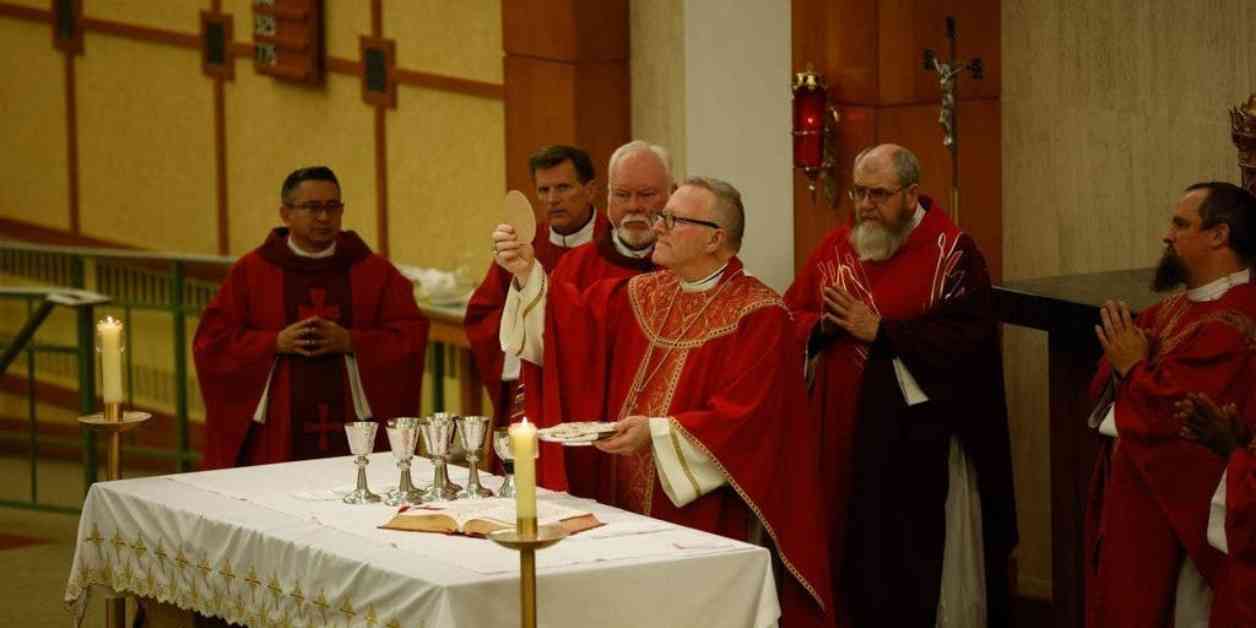Catholic Charities of the Diocese of Superior, a Wisconsin-based organization, is taking its fight to remain exempt from a state unemployment program to the U.S. Supreme Court. Represented by lawyers at Becket Law, the charity is seeking to overturn a decision by the Wisconsin Supreme Court that denied its exemption. The organization argues that its care for the poor, elderly, and disabled is an integral part of its religious mission.
The Wisconsin Supreme Court ruled 4-3 that Catholic Charities’ services did not qualify as “typical” religious activities, thus disqualifying them from the exemption. This decision has sparked a legal battle as Catholic Charities seeks to be exempt from the state’s unemployment compensation program in order to align with the Wisconsin Catholic Church’s program.
Bishop James Powers, the Bishop of the Diocese of Superior, emphasized the importance of Catholic Charities’ work in caring for the most vulnerable members of society. He expressed hope that the Supreme Court would recognize the organization’s efforts to improve the human condition as rooted in Christ’s call to serve those in need.
The crux of the legal dispute lies in the interpretation of Wisconsin law, which generally exempts non-profits operated for religious purposes from certain state programs. However, the Wisconsin Supreme Court ruled that Catholic Charities did not qualify for the exemption because it serves individuals of all faiths, not just Catholics. The court suggested that the organization could only be exempt if it restricted its hiring to Catholics and attempted to convert those it served, which goes against the Catholic Church’s teachings.
The petition to the Supreme Court argues against the notion that Catholic Charities’ services lack a religious purpose because they are also provided by secular organizations. It highlights the danger of forcing religious entities to conform to stereotypes in order to qualify for exemptions, which raises complex First Amendment questions related to the Free Exercise Clause, the Establishment Clause, and church autonomy.
Eric Rassbach, senior counsel at Becket, underscored the importance of Catholic Charities’ work in serving the poor as a religious duty for Catholics. He criticized the Wisconsin Supreme Court’s decision as an absurd conclusion that undermines the organization’s religious purpose. Becket is urging the Supreme Court to intervene and correct the perceived mistake.
The Supreme Court has the opportunity to address this issue as early as this fall, potentially setting a precedent for how religious organizations are treated under state laws. The outcome of this case could have far-reaching implications for religious freedom and the ability of organizations like Catholic Charities to carry out their mission without interference.
In a landscape where religious freedom is increasingly under scrutiny, the case of Catholic Charities of the Diocese of Superior serves as a litmus test for how courts interpret and uphold the rights of religious organizations. As the legal battle unfolds, the implications for other non-profits and religious institutions across the country remain significant.
The Stakes for Religious Freedom
At the heart of the Catholic Charities case is the fundamental question of religious freedom. The organization’s appeal to the Supreme Court is not just about its own exemption from a state program but about the broader implications for religious organizations’ ability to operate according to their beliefs.
The Wisconsin Supreme Court’s ruling that Catholic Charities’ services do not qualify as “typical” religious activities sets a dangerous precedent that could limit the scope of religious organizations’ work. By requiring organizations to adhere to specific criteria in order to qualify for exemptions, the court effectively undermines the autonomy and mission of these organizations.
Implications for Nonprofit Organizations
The outcome of the Catholic Charities case could have significant implications for nonprofit organizations across the country. If the Supreme Court rules in favor of Catholic Charities, it could establish a precedent that protects the religious freedom of all nonprofit organizations, not just those affiliated with the Catholic Church.
Nonprofit organizations play a crucial role in providing essential services to communities in need. By upholding the rights of organizations like Catholic Charities to operate according to their religious beliefs, the Supreme Court would ensure that these organizations can continue to serve their communities without fear of discrimination or interference.
Protecting First Amendment Rights
At its core, the Catholic Charities case is about protecting First Amendment rights. The freedom to practice one’s religion without interference from the government is a cornerstone of American democracy. By challenging the Wisconsin Supreme Court’s decision, Catholic Charities is asserting its right to operate according to its religious beliefs.
The Supreme Court’s decision in this case will have far-reaching implications for how the First Amendment is interpreted and applied in cases involving religious organizations. By taking up this case, the Court has the opportunity to reaffirm the importance of protecting religious freedom for all Americans, regardless of their faith.
In conclusion, the case of Catholic Charities of the Diocese of Superior represents a critical moment in the ongoing debate over religious freedom in the United States. As the organization appeals to the Supreme Court for protection of its rights, the outcome of this case will shape the future of religious organizations’ ability to operate according to their beliefs. The implications of this case extend beyond Catholic Charities to all nonprofit organizations and religious institutions across the country. It is a pivotal moment in the fight to uphold the First Amendment rights of all Americans.




